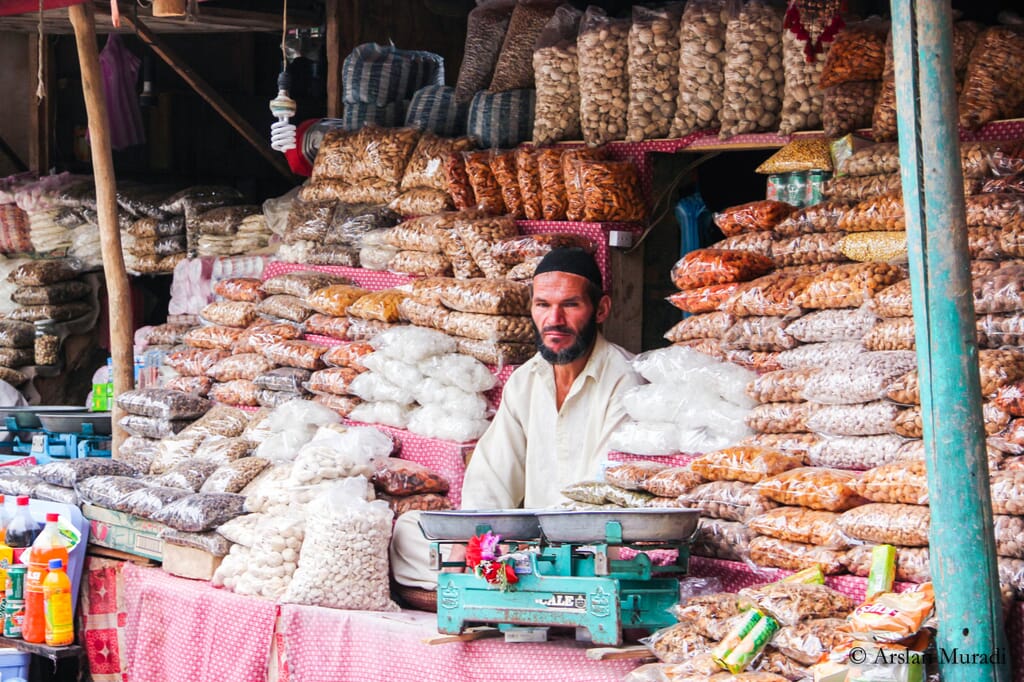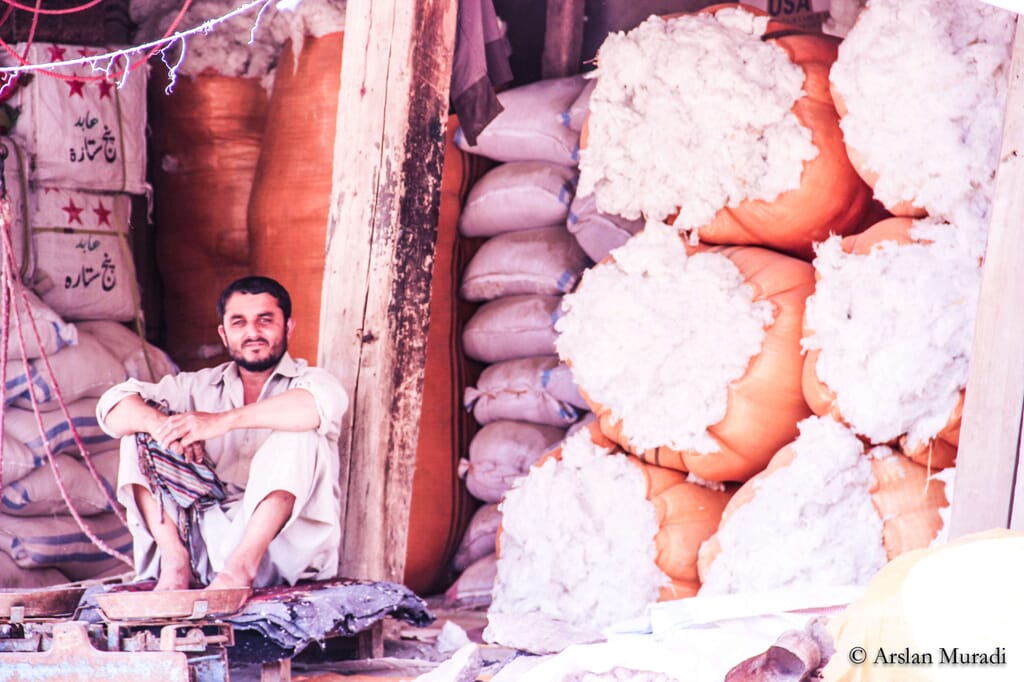AFGHANISTAN’S OPPORTUNITY IN A CHANGING WORLD
AUTHORS

NICOLE BOGOTT
Lived one year in Afghanistan. She is a published author, social entrepreneur and guest lecturer at Freie Universität of Berlin.

TANJA SCHOMANN
Is a Social Psychology researcher at Cambridge University and co-founder of Philia, an international feminine leadership network.

Dr. BRANKO WOISCHWILL
Works as a lecturer at the JFKInstitute of the Free University of Berlin.
The concept of trust is as old as humankind: Every social interaction requires a certain degree of trust. No matter if it is a situation in one’s personal life such as entrusting your child to a nanny, or a situation in professional life such as outsourcing the production of art of your product to a contractor, trust provides the basis for these interactions. Trust in 2018 has gained momentum. Established structures are affected by unpredictable dynamics leading to grave uncertainties in the Western world, see for example the Brexit. And in Afghanistan, the most diverse risks determine everyday life. However, the economy requires a culture of trust to achieve business goals and growth.
According to Rachel Botsman, a prominent trust researcher, trust is defined as “The comfortable relationship with the unknown”. In her work, she speaks of an evolution of trust from local, to institutional and finally towards distributed trust. The future is unknown to all of us and the question arises, where do you place your trust in bringing about the things you want to see happening?
You may ask: But is it necessary to trust? There are essentially only two ways to avoid having to trust at all: Either you rely as much as possible on yourself and outsource as little as possible, or you operate in an environment of heavy controls and sanctions. Neither of these approaches is practical in real life. If you want to scale, you need to work with others. Therefore, as you cannot do everything yourself, you need to trust. To trust means to take a risk – the risk that the people or entities you trust fail to keep their promises. What are the main reasons relationships based on trust fail? A lack of competence, benevolence, and/or integrity. In other words, a trust relationship fails, if one of the involved parties is either unable or lacks goodwill to deliver on the promise.
So, what is new about all this and what does it have to do with Afghanistan? Globally, there is a shift in the economy from interpersonal towards digital interactions, which is a recent development. Due to digitalization, a relocation of trust took place from trusting in individuals, towards trusting in brands, and now towards trusting in strangers facilitated digitally. Take UBER or Airbnb to name two very prominent examples.
In traditional economies, most trust relationships are straightforward: one person trusts another person. The first shift away from the most direct placement of trust in local merchants took place with the rise of large corporations, moving the linear dynamic from trust in people towards trust in brands. The recent rise of digital markets added an extra layer of complexity to the dynamics of trust. Now, people trust in companies whose representatives they never meet in person. But it does not stop there: What is more, beyond trusting in online-based companies, people also need to trust in the software and hardware that supports companies’ infrastructure, as well as the delivery service that is supposed to be reliable in getting the products that people order. In short: levels and levels of complexity.
Generally speaking, there are two types of trust in the economy: System trust (human to system) and interpersonal trust (human to human). System trust means that a person predominantly trusts another person or business, because the trusting person believes that the regulatory framework of the system will prevent the other from cheating. The person believes that if the other person attempted to cheat, police or some other mechanism would take charge of the situation and losses would be minimized and/or rectified. In short: The public places its trust in regulatory institutions. In fragile contexts there is a tendency towards interpersonal rather than system trust. So, the role of Afghanistan is somewhat special when compared to the experience that Western countries have in integrating these new dynamics that are happening in the global economy. While in Afghanistan institutions are not heavily trusted in the first place, in the Western world institutional trust is crumbling.

Interpersonal trust relies less on regulatory frameworks, but more on relationships between individuals. That means a person trusts another person, because they share, for example, certain values or they are part of the same community. Whereas system trust only works if the regulatory framework is functional, interpersonal trust only works when people remain in the same community and interactions are repeated. This is important because interpersonal trust is highly dependent on a reputation that builds over time. In Afghanistan’s economy, contrary to most Western countries, there is a higher emphasis on interpersonal trust rather than system trust. It’s commonly known that million-dollar deals, such as in the Hawala system in Afghanistan’s informal economy, are made just by making phone calls, in absence of contracts and written agreements of any sort.
As mentioned, the change from traditional to digital economies is already in full swing. How does an economy that is based on interpersonal trust, such as the Afghan one, fit into the picture? To get a better understanding, it makes sense to analyze the basic functioning of different online-based services and compare classical e-commerce with the sharing economy. Classical e-commerce services involve very little personal interaction: a company offers products or services online and users provide payment details and addresses to receive the order. That means the interaction is built on system trust facilitated digitally rather than interpersonal trust. In conclusion, for e-commerce to thrive, the user must place a fair amount of trust in the regulatory system. The recent boom in the number of online stores and delivery systems in Afghanistan, such as Zoot Zoot, Gawharshad, and Arzan Qeemat, signify the importance of trust between people and the system. In absence of online payment systems in Afghanistan, e-commerce sites still operate where mutual trust is much stronger because the sites deliver goods to people with a cash on delivery system. It’s yet to seen how effectively the regulatory system keeps the e-ecosystem intact.
In the sharing economy, things look very different from the aforementioned classical e-commerce. Take a company such as Airbnb. Airbnb is a US-based platform, on which users all over the globe offer their own homes for lease, mainly to holiday guests that are essentially strangers to them. Airbnb does not have any own property. The accommodation is provided from user to user. For example, when you offer a room to a person that you have never met in your life, you need to fully trust that person. And vice versa, if you stay at a stranger’s house, you need a lot of trust in the other person to do so. This is significant because a business model in the sharing economy, such as that of Airbnb, relies on facilitating people’s trust in each other. Hence, the company requires people’s ability to build and maintain interpersonal trust.
In essence, companies operating in the sharing economy facilitate interpersonal trust by introducing reputation systems such as star ratings and recommendation fields. Some even link profiles to social media accounts, so that users can validate whether the other users are real people in the sense that they have social media followers and post photos from their real life. In Afghanistan, people already establish interpersonal trust. So, in the future, the rise of the sharing economy can be seen as an opportunity, because building and maintaining a reputation functions in similar ways offline and online. You need to make your trusting actions seen and you need to deal in a respectful way with other players in the market. Only this way, your profile gains credibility and others trust you. However, to enable these behaviors, the digital platforms must be easy to use and easy to handle. If a user interface is too complicated and more likely to hinder human interaction, it will reduce trust and thus productivity.
In summary, trust has always been an inherent factor of social interactions in general, and in business specifically. The transition of the economy towards digital services has increased the amount of complexity in the economy. When considering classical e-commerce, a country that is very focused on interpersonal trust such as Afghanistan may seem disadvantaged. When it comes to the sharing economy; however, Afghanistan’s aptitude for interpersonal trust may result in a competitive advantage.
“In 2018, the authors will publish a business book that deals in detail with the latest perspectives and concrete proposals for action regarding trust.”







